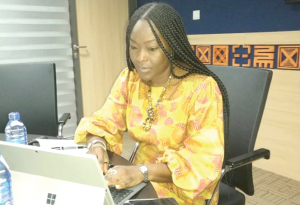 MORE than 370 eligible Ghanaian companies, with over 800 products are on the database of ECOWAS Commission. Nineteen of these companies were given approval during the first half of 2014.
MORE than 370 eligible Ghanaian companies, with over 800 products are on the database of ECOWAS Commission. Nineteen of these companies were given approval during the first half of 2014.
Ghana’s Minister of Finance, Seth Terkper has disclosed.
However, he explained that at the request of the Economic Community of West African States (ECOWAS) Commission, a clean-up of this database was ongoing in order to reflect the true status of the companies operating under the ECOWAS Trade Liberalization Scheme (ETLS).
Mr Terkper told Parliament in Accra that to ensure the increase in the number of beneficiaries of ETLS and enhance exports in general, an Exporters Forum will be organized to target the areas where more export companies are located namely Accra, Tema, Kumasi and Takoradi.
He stressed: “Government also sees the need to further organize a border operative fora for the three main border points in Ghana, namely Elubo, Paga and Aflao, targeting the Police Personnel, Immigration Officers, Custom Officials, Civil Society Organizations, Market Women Associations, District Assemblies, Media, Freight Forwarders and other Identifiable groups to create awareness”.
Following the recommendations made at the West Africa Monetary Zone (WAMZ) Trade Ministers’ Forum held on 13th December, 2013 in Dakar, Senegal, the Ministry of Trade and Industry accepted to host the Secretariat of the National Approvals Committees (NAC) of the scheme.
This will help give ETLS activities the required attention and focus in line with the expectations of the ETLS protocols, according to Mr Terkper.
Ghana continues to implement the ETLS which was started in 1989 to promote intra-West African trade. A number of challenges are still faced by various stakeholders and this explains why trade within the region still remains low.
The major challenges that still hamper the success of the ETLS, the minister mentioned include forged approval certificates; the absence of real time updated records of certified products and registered companies under the scheme; presence of non-tariff barriers; and poor infrastructure.
African Eye News.com





